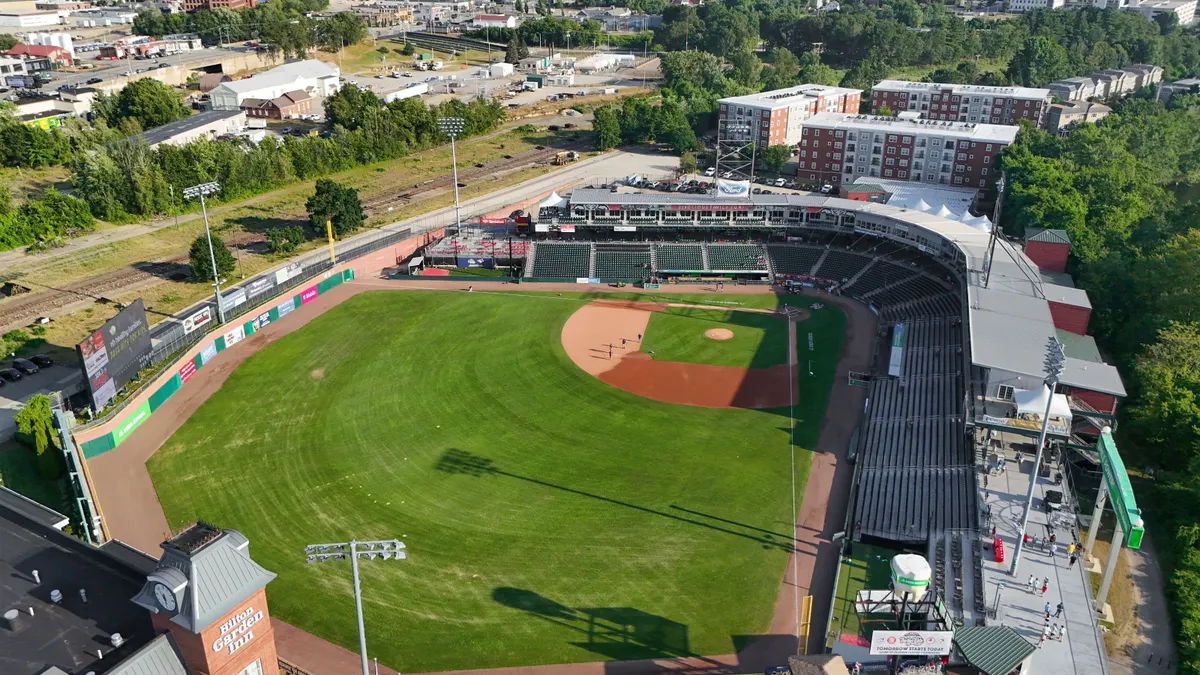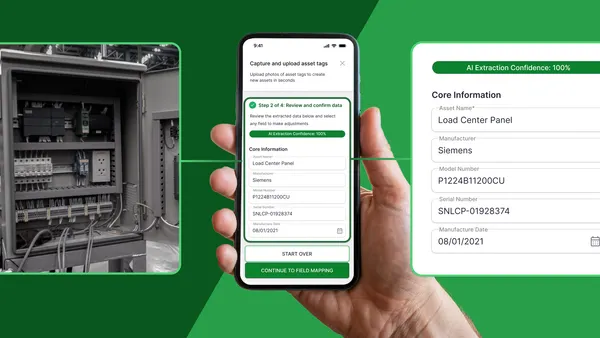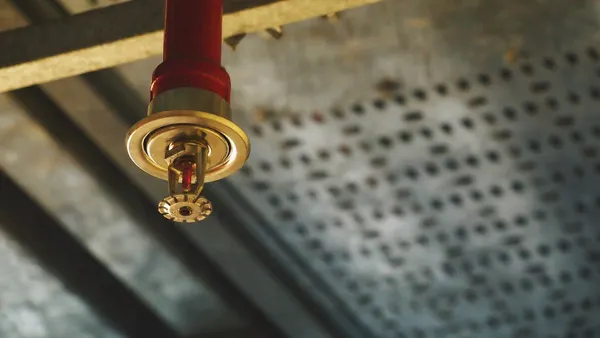Security hasn’t been a major issue at the 6,500-seat stadium for the Fisher Cats, a Double-A minor league baseball team in Manchester, New Hampshire, but the team nevertheless invested in an upgraded camera system in May. The goal was to close blind spots but also give the team visibility into non-security related matters that can help it on the operations side, the team’s facilities manager says.
“We’re using real-time analytics from the cameras to check out out how many people are coming in our front gate, how many people are leaving, because [we’re trying to learn] how best to keep people in seats for the entire game,” Melissa Dallenbach, director of stadium operations at Delta Dental Stadium, told Facilities Dive.
They’re also using the cameras as a set of eyes on the stadium’s mechanical systems.
“We had a leak in our pump room,” she said. “It happened on the weekend but we didn’t know about it until we got back on Monday. We looked at the cameras to try to figure out why, or when, it started leaking. A lot of [our diagnostic process] comes from looking at the cameras these days.”
The stadium had about a dozen cameras when Dallenbach came on board 18 months ago, the minimum necessary to comply with the team’s PDL – the professional development license the team has with Major League Baseball to compete in the minor league. The cameras were mainly to cover the hallways and entrances. “You have to have security cameras pointed at all of the clubhouse doors, all of the team areas, to make sure their stuff is secure,” she said.
With its new Verkada system, the team has doubled the number of cameras and added door and motion sensors, Dallenbach said.
The greater visibility means areas that weren’t covered before are covered. “There was somebody that did something to our lifts, our boom lifts, our heavy equipment in the back lot the other day,” she said. Her team looked at the video feed to figure out what happened. “We were able to narrow that down.”
Dallenbach gets alerts on her phone when the door or motion sensors are tripped or the cameras see something that could be an issue. The phone alerts are an upgrade from the previous system, she says.
“Before, you could only look at the other cameras on certain computers and you had to have a certain plug-in,” she said. “It was just hard to access. Now I have everything on my phone. I can be, like, ‘Oh, an alarm went off. Why did it go off? Because Joe went into the brewhouse. I don’t need to worry about that.’”
The team has 25 full-time employees overseeing the stadium. Dallenbach manages a team of three. One takes care of the mechanical and other building systems, one manages the ushers, ticket takers and other people who work on game days, and one manages special events. The stadium will host a haunted house in October, for example.
The team typically draws between 2,000 and 5,000 people a game. If there’s a fan that’s repeatedly disruptive, Dallenbach can program the cameras to alert her if that fan is in the stadium.
“We’re able to capture his picture and put it into the system and it’ll text us whenever he walks through the front gate,” she said. “‘Hey, so and so is here; keep an eye out.’”
False alarms were a problem before the new cameras were installed, she said.
“Most of the time it was just somebody from our staff that unlocked a door,” she said. “They unlocked the door to the press box or to the brewhouse or to the clubhouse. They’re supposed to be going there, but they didn’t realize the alarm was on, or they didn’t have the code to disarm it.”
Each time the police showed up when there wasn’t a security breach, the team was charged for a false-alarm call, she said. That’s an expense that might drop now.
“I don’t have to try to figure out why the alarm went off,” she said. “I have what’s happening right here in my hand.”













